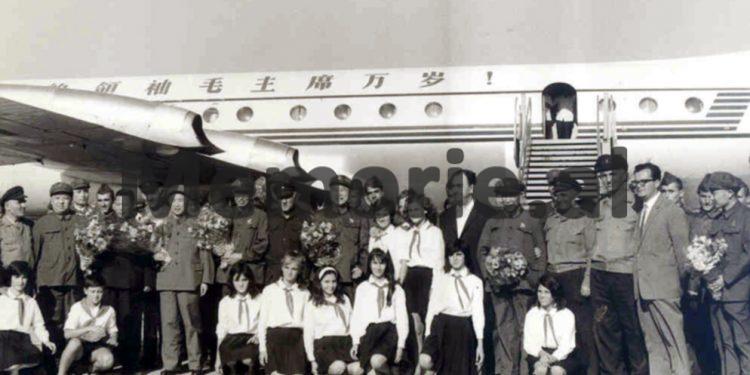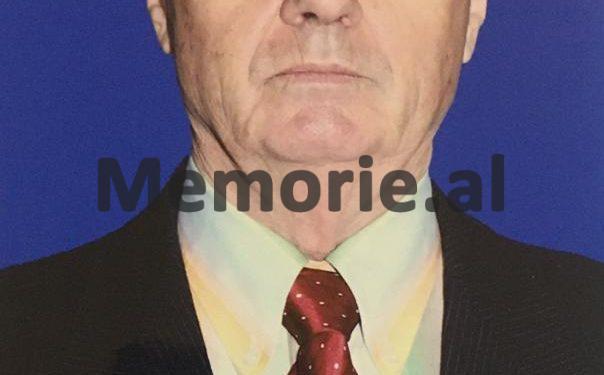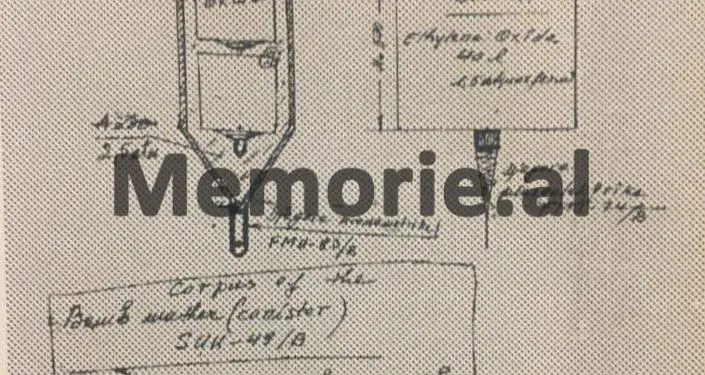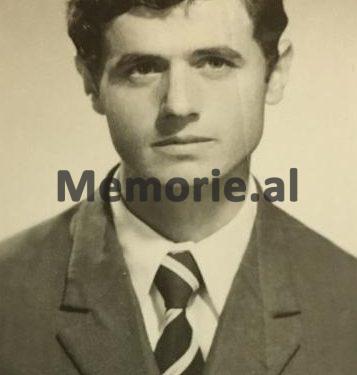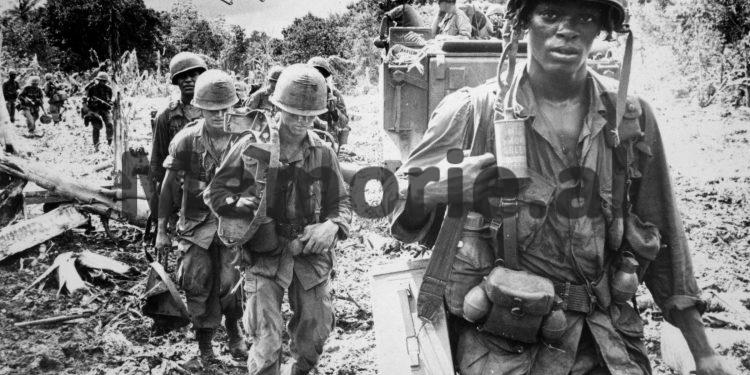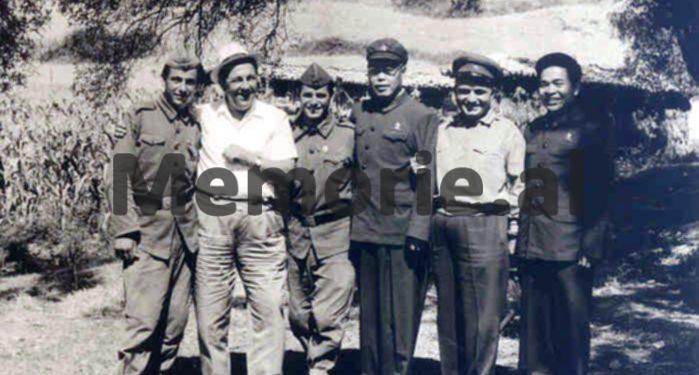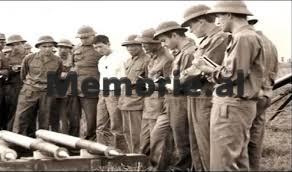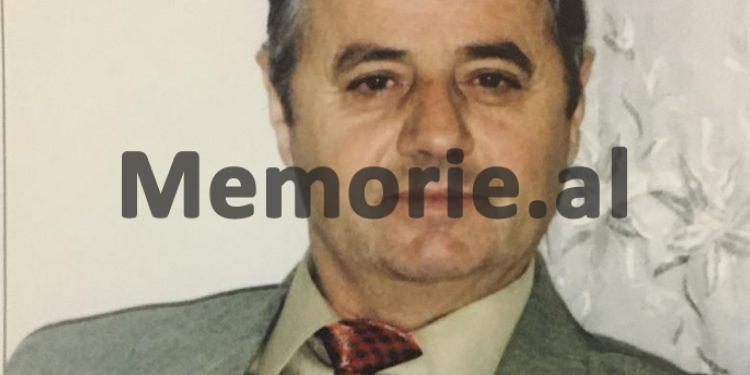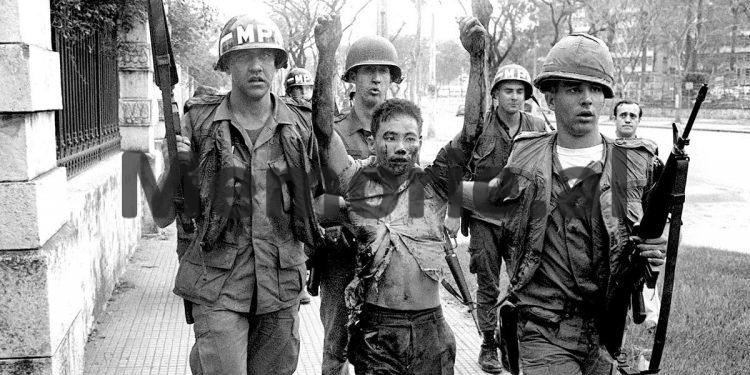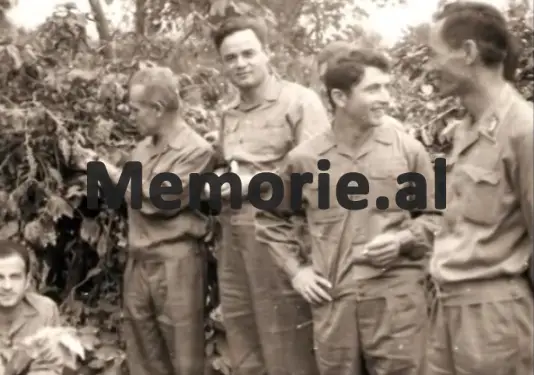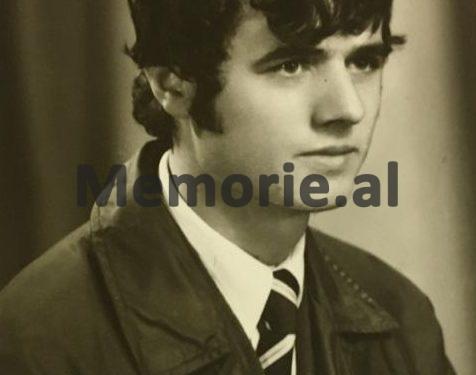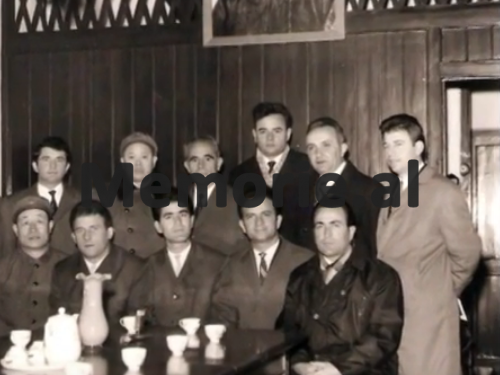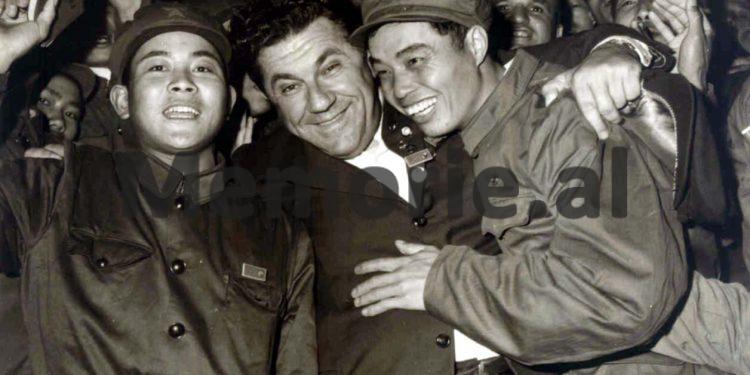Dashnor Kaloçi
The rare testimony of Memush Habilaj, a former member of that secret mission and then acting Director of the Central Chemical Research Laboratory at the Ministry of Defense, regarding the special orders given to that group by Prime Minister Mehmet Shehu and the Minister of Works Foreign Minister Nesti Nase, for that mission to be kept secret, the itinerary of many voyages and the intervention of Ambassador Sokrat Plaka in Belgrade, the reception received from their North Vietnamese counterparts, and how it was deconstructed. mission, as much as they had written for some French and Serbian magazines, which Mehmet Shehu told them after the group returned from Vietnam!
Testimony of Military Engineer Memush Habilaj: “In October 1979, along with seven other colleagues from the Ministry of Defense, went to South Vietnam on a very secret mission. Mehmet Shehu had told us that they should at all costs take any kind of dollar price in hand, the famous SAM-7 missile that had surprised the West, which the Chinese had rejected. ”
“Our military mission in Vietnam lasted about two months, and in December 1979, when we returned to Albania, the Prime Minister and Minister of Defense, Mehmet Shehu, summoned our Chief Gaqo I. to let him know that despite numerous measures that had been taken for camouflage, our mission was deco-inspired and to prove it, he told two foreign newspapers (Serbian and French) that had published all the names of our group members and the purpose of why we had gone to Vietnam. So remembers the former senior Defense Ministry soldier, Memush Habilaj, in his exclusive interview with Memorie.al, the secrets of that secret mission of Albanian servicemen who went to distant Vietnam in October 1979, following the order of Mehmet Shehu.
What was that mission, who were the other members of the group, and why was it kept secret? What were the orders given before the departure by Deputy Defense Minister Nazar Berberi and Prime Minister Mehmet Shehu? What was the famous weapon that had puzzled the West, which the Chinese had refused to give to Albania, and why Mehmet Shehu had cut his orders and asked the Albanian military mission to take it to Vietnam at all costs, even if paid in dollars with whatever amount they were asked for ?! What help had the Albanian Army given them to North Vietnam when they were fighting with South Vietnam, and what did they require from that mission that they were sending?
What did Foreign Minister Nase Nase say to them before departure, and how the mission of the Albanian servicemen was camouflaged on that distant voyage where all the Albanian ambassadors to the countries where they were to transit were ordered to go out airports and take steps to prevent the “trade delegation” trip from failing? How was the trip accomplished, and how was Socrates Plaka avoided that mission’s possible failure by the airport employees’ strike in Belgrade? How did they arrive at Saigon Airport and why were the passengers on that line surprised when the “Albanian Trade Delegation” was greeted by the luxurious “Benz” who approached the staircase ?!
Who hosted the mission of the Albanian soldiers in Hanoi, why they were sent to the American-built palace, how they were followed at every step by Soviet agents, and why they went all the way to Cambodia ?! What kind of data and weapons did the Ministry of Defense’s military engineers’ mission get and why the Vietnamese were reluctant to give them much of the weapons and fighting technique they requested ?! Concerning these and other secret and unknown sides of that military mission that went to Vietnam 41 years ago, he introduces us to his exclusive interview with Memorie.al, a former military and chemical engineer, Memush Habilaj, former Director of Central Laboratory of Chemical Research of the Ministry of Defense.
follows from the previous number
Mr. Habilaj, how was your departure from Rinas Airport and how was your mission camouflaged?
Shortly before departure, we were given the final instructions on how to leave for Rinas, where we were told, inter alia: we should not have any documents or pictures with us to prove that we were military. According to these instructions, our group of seven departed towards Rinas airport, not by the means of the Ministry of Defense, but by special taxis, for each of us who went there from different directions. Also in Rinas, we were not conveyed by any of the heads of the Ministry of Defense, but only the Vietnam Trade Attaché, since we were camouflaged as a civilian attaché.
What was the highlight of your trip to Vietnam ?
From Rinas, we boarded the Yugoslav airline JAT aircraft, and our journey lasting about three days was: Tirana-Beogard-Vienna-Paris-Zurich, and then Zurich-Dubai-Bombay-Saigon-Hanoi. During the trip, we changed several aircraft, due to the numerous problems encountered during the trip.
What problems did you face, and did they endanger the purpose of your mission ?
We had trouble traveling at the first stop at the Belgrade airport, where we could not continue our trip to Paris due to a strike started by the employees of that airport. As soon as we landed at the Belgrade airport, our ambassador Socrates Plaka received us, who, after having lunch, provided us with another plane heading for Paris. When we arrived at the Paris airport, the ambassador, Misto Treska, was there to greet us, who also arranged for us to have lunch. There in Paris, I learned that, at the behest of Mehmet Shehu (who considered our visit to Vietnam important), the Foreign Minister, Nesti Nase, had commissioned all the ambassadors of the countries we were to pass to they were waiting for us and taking all measures so that our journey would not be hindered. And according to this order, all of our embassies in the places we were going to cross showed great readiness, and by the time we arrived in Saigon, we had no problems.
Who hosted you at Saigon Airport?
When we arrived at Saigon Airport, it was raining heavily, and passengers were reluctant to go down. At that time, some Vietnamese civilians dressed in Vietnamese came to the door of the plane and asked, “Who are the members of the trade delegation coming from Albania”? After that, we went out and boarded the three luxurious “Benzes” approaching the staircase, which caused a great surprise to all the passengers of the aircraft, as a trade delegation from Albania was expected to these luxury cars without being checked at customs. At the Saigon airport lounges, also called Ho Chi Min, we were greeted by some civilians of the Vietnamese Ministry of Defense wearing civilians, as well as our ambassador, Yzedin Bimo. After the occasional meetings with the military delegation that had come out to meet us, with a special aircraft specially designed for us, we headed to Hanoi, the capital of North Vietnam, although at that time, Vietnam was unified in a single state.
Where did your delegation settle, and how were you treated during your stay there?
In the capital city of Hanoi, which at that time had about two million inhabitants, we were accommodated in the best hotel in that city, in very comfortable conditions. During those days, we visited almost all the highlights of the city, but wherever we went, besides our official companions, we also saw other people regularly surveying us. It was impossible to get to know them, as they all looked the same to us. The hotel where we were staying was the best Hanoi had, there were other clients from different countries around the world, where the Soviets were more in the eye
Your mission, was there any program related to your visits to Vietnam?
Everything that we would accomplish in Vietnam, since our joint visits and workshops, had previously been foreseen under a bilateral agreement, which was signed by our Ministry of Defense and that of Vietnam. Based on this agreement, and on our request, all visits we would make to the divisions, various military ground, air, and naval bases, as well as fortified centers, were foreseen. So based on this program, we visited many of these bases, for all kinds of specialties that we were interested in, such as Liaison, Chemistry, Engineering, Anti-Air Defense, etc. We also visited many different military schools, mostly located on the outskirts of Hanoi. Everywhere we went, we were accompanied by one or two of our respective arms counterparts, who communicated in Russian because all members of our delegation were fluent in the language, and the Vietnamese had completed all schools in the Soviet Union. At distances close to Hanoi, we would drive by car, while in the distant ones, by helicopter.
What reality did you encounter, and what impressed you most during your visit there?
The first thing to notice, once a breach in Vietnam, was the scorched earth and the many devastations you saw everywhere from the bombings that the Americans had done with napalm bombs. During those days in Hanoi, we were also taken to see the palace where the US Army Commander-in-Chief had resided, which had served as a residential villa. That giant building, the Vietnamese, had returned to the residence for the reception of foreign delegations and had not moved from there, none of what the Americans had left on the day they left. There were even stationery items in the office of the commander-in-chief. The Vietnamese had it as a trophy, to boast of the war they had waged against the Americans. This was one of the few buildings destroyed in Vietnam that prevailed. So was Cambodia in this situation.
Why did you go to Cambodia?
During those seven weeks, we stayed there, our Vietnamese companions also sent us to Cambodia. This is where three of the mission members (including myself) were visiting a field bombed by chemical weapons and napalm bombs, somewhere near the border, which ran hundreds of miles. within Cambodia. Vietnamese escorts did not tell us where they were taking us, but we did note that during that trip, they were accompanying us in a jeep with armed soldiers. As the Vietnamese told us, but as we have also seen, traveling to the jungles of Cambodia was very dangerous, because, in those jungles, backward tribes lived with no connection to the rest of the country. They wanted to shoot us as Americans.
How did the Vietnamese respond to your requests that you said were made before, by agreement?
At the first meeting we had with the Vietnamese side in their Ministry of Defense, where we were first greeted by the Minister and then the Deputy Minister who hosted a lunch in honor of our delegation, we let them know our requests, telling them: we were friendly places, and we wanted them to help us. When we submitted our requests, we noticed a reluctance to help them, and we developed a complete conviction that they were keeping us reserved, and we would find it very difficult to get what we were looking for. When we asked for different types of weapons or combat techniques, they would respond, “We’ll ask, Ministry, we’re not ready for that, we’ll talk again, etc.” Likewise, when we asked about any weapon according to what we had foreseen in the agreement, they responded briefly, and changed the topic of conversation, to topics unimportant to us.
What about Mehmet Shehu’s special order for the SAM-7 missile when you submitted it?
Since our first meeting with the Vietnamese military, we have put forward a request for the SAM-7 missile, the key point being, “We know you have been destroyed by the war, and have many problems, but we ask that help us by giving us two specimens of SAM-7 (Soviet-made), which we will buy with dollars in hand, as it will cost you because you do not produce it yourself, but buy it with dollars. ”
How did they respond to this request?
Upon hearing our request, they told us they had those weapons in the front, and that in Hanoi, there were none. We told them we would wait, and after a few days when we saw that they were not responding, we again filed this request. Even after that, they started other excuses, telling us that: Their Defense Minister had made a visit outside Vietnam, and as soon as he arrived, they would submit our request. Although we realized that they did not want to give us that rocket, in the last days of our stay, we mentioned the SAM-7 rocket problem once again, and they told us they would send one or two specimens to Albania.
What were the reasons the Vietnamese didn’t want to give you that rocket?
In parenthesis, I wanted to point out that while we were having this conversation, where the missile request was repeated several times, one of the Vietnamese servicemen, who was the leader of the group, got up and left the room, and after a few minutes returned, back there. What impressed us most was not that he got up and left the room, because that was how the talks were going and so we went for coffee, but when he came back, he was smoking Soviet-produced cigarettes that we knew Very well. We immediately looked into each other’s eyes and realized that in the room next to us were Soviet military advisers with whom the Vietnamese were consulting on everything. His mistake was that he forgot to turn off the cigarette when he returned to us. So I wanted to point out that for whatever we were looking for, they were asking the Soviets, and given this fact, I say that even the missile, they didn’t want to give it to us.
But after the rejection of the SAM-7 missile, did you insist on any other weapons?
After not giving us the SAM-7 rocket, we insisted on taking the B.L.U. which, has been widely used by Americans, against Vietnamese.
What was this bomb and why did you ask for it?
The B.L.U. bomb. which was used by the Americans at the time made a big fuss, and is a version of what was also thrown by the Americans on the grounds that bin Laden was thought to be hiding in the mountains of Afghanistan in 2010-2011. This bomb dropped by the aircraft, when it drops to the ground, creates a giant fireball that spreads rapidly and destroys everything, consuming air oxygen as well. Thus, in addition to its devastating effects, which are the same as a powerful earthquake, it kills all living things that cannot live more than two minutes from lack of oxygen. This bomb, American aviation, was thrown at the tunnels by the Vietnamese, and everything turned into ashes. Given the fuss that this bomb made in the western press, the Ministry of Defense gave us the task of getting a copy of it in order to see the possibility of its production in Albania.
Did the Vietnamese give you this bomb?
Even for this bomb, the Vietnamese responded to us in the same way as for the SAM-7 rocket, justifying it. But during those meetings, one of our mission friends took advantage of the opportunity and was able to copy all the data, from the original catalog that the Vietnamese had left open on the table, during our talks. After that, as soon as we went into the hotel room, without saying a word, that we knew there were eavesdroppers, we threw her outline on clear paper, recording all the parameters we needed to produce it.
What percentage of your requests were met by Vietnamese?
They met less than 50 percent of our requests, which shipments were then shipped to us.
When did you return, how did the Ministry of Defense react to your mission failure?
When we returned to Tirana, we made a general report of our mission to the Ministry of Defense, and there was no reaction from them because they knew the situation, and it was nothing new that the Vietnamese side did not fulfill the obligations they had signed with us. What we were surprised about was that: despite the many measures we had taken to get them traded, our mission was deconstructed.
How did you learn this ?!
We learned this when Mehmet Shehu called into the office, our chief Gaqo I., to whom he told two foreign newspapers, namely French and Yugoslav, which had listed all the names of our delegation members, and the mission we were to perform. Vietnam.
What about the B.L.U. bomb sketch? that you could get there?
In terms of the draft B.L.U. that we brought, the Prime Minister and the Minister of Defense, Mehmet Shehu, instructed to study the possibility of its production in our country.
Was it produced in Albania?
Following the instruction of Mehmet Shehu, a task force was set up at the Army Chemical Research Central Laboratory, which at the time was headed by engineer Pirro Begvarfi, to study the bomb, which was headed by the talented engineer. , Kudret Meta. This study lasted about a year, and when that work was nearing completion, Mehmet Shehu’s death occurred, and the work was interrupted. After that, B.L.U. bomb project. was suspended, and its file archived.
But then, were any more guns taken from Vietnam?
From Vietnam at that time, a small amount of armament and combat techniques were obtained, as Albania imported almost all of the weaponry from China. Many of these weapons, including chemical weapons, remained stockpiles, and after the 1990s somehow became an obstacle to Albania’s NATO accession. Memorie.al




